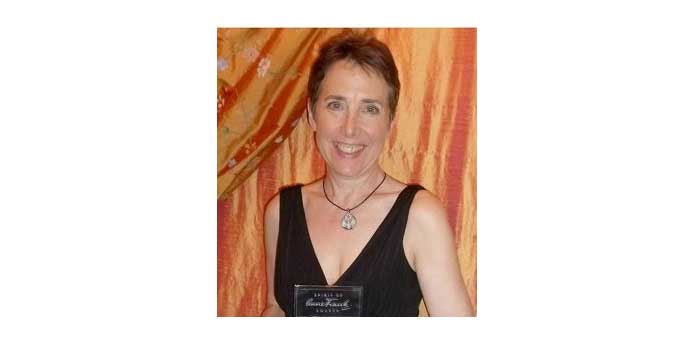As a young Jewish girl, Anya Cordell read The Diary of Anne Frank, and wondered whether she would have had the same kind of courage as the people who helped the Frank family hide during the Holocaust.
Many years later, Cordell proved to herself that she could follow, in her small way, in the footsteps of those people who inspired her.
Earlier this year, Cordell was awarded the Spirit of Anne Frank Outstanding Citizen Award by Anne Frank Center USA. Cordell, an Evanston human rights activist, was honored for her work against what she has dubbed “appearance-ism”—any sort of judging or stereotyping of ourselves or others based on appearance.
Cordell is the author of “Race: An Open & Shut Case,” an illustrated book that challenges readers to examine their preconceptions about race and other appearance-based judgments. She spreads her message through her websites Appearance-ism.com and AnyaCordell.com, and by speaking at local schools, community groups and corporations.
“What Anya is doing is really unique,” says Maureen McNeil, director of education at the Anne Frank Center. “Anya has really worked on looking at race and appearance and a lot of the same issues that come up in Anne Frank’s diary, like stereotyping.”
Cordell says she grew up in a family in which style and appearance were highly valued, and she describes her teenage self as a fashion- and beauty-obsessed. But in her twenties, she began to question her own beliefs about appearance.
“I put a lot of time, money and energy into my appearance,” Cordell says. “Then it began to dawn on me that this is not the sum total of who I am and I don’t want to be judged solely on that basis.”
Over time, Cordell says, she began to see connections between our culture’s obsession with fashion and beauty and other forms of appearance-based judgment like racism. She became even more passionate about ending racism and stereotyping after the 1999 murder of her neighbor, Ricky Byrdsong, an African American father and Northwestern University basketball coach who was killed by a white supremacist.
“As a mother and a member of the community, I thought, ‘We have to do something,’” Cordell recalls. “So, my husband and I opened up our house to anyone in the neighborhood who felt they needed to be together at that time.”
Because she opened her home, Cordell says she got to know people she otherwise might not have met. That experience, she says, inspired her to pen her book about race.
Cordell was compelled to action again after the 9/11 attacks, when innocent Muslims, Sikhs and Hindus became the targets of harassment and violence. Cordell reached out to an Arizona community where several Sikhs were murdered and a Texas widow whose Hindu husband was killed in the gas station he had operated. She became close friends with the Sikh and Hindu families she tried to comfort in the wake of their tragedies, and now, she says she considers them family. Cordell says many people find it surprising that a Jewish woman would befriend a Sikh family, but it is those kinds of stories that she uses to inspire others to end appearance-based stereotyping.
“Once you get into each other’s lives and living rooms, that’s when you start to dispel the misconceptions,” Cordell says.

